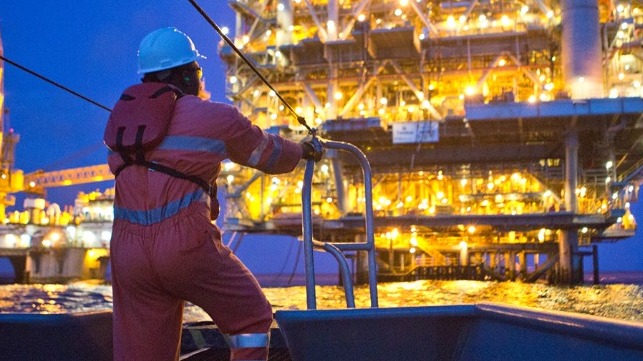Oil Majors Begin to Require Vaccine for U.S. Gulf Offshore Workers

Now that the U.S. Food and Drug Administration has given full and final approval to the Pfizer-BioNTech vaccine for COVID-19, oil companies Chevron and Hess have announced that they will require their offshore workers in the U.S. Gulf of Mexico to get vaccinated as a condition of employment. Hess cited the "highly infectious nature" of the Delta variant of the disease as a key factor in its decision.
In addition, leading oilfield services company Schlumberger told media that oil majors are now requiring that contractor personnel must be both vaccinated and tested before arriving at rig sites. Valero, a leading refiner, has already imposed a blanket vaccine requirement as a hiring condition for new workers at its Louisiana and Texas facilities earlier this month.
The South and Southeast are at the center of the United States' COVID-19 caseload. Louisiana, the spiritual home of the American offshore oil industry, has some of the highest case and hospitalization rates in the country; its statewide vaccination rate is just 39 percent, 12 points behind the national average. In late July, the state of Louisiana reported that about 80,000 doses of vaccine went unused and had to be discarded because of low demand. "We just don’t have people that want to take the vaccine,” said Warner Thomas, CEO of one of the state's largest hospital chains, in a news conference July 28. The uptake rate for vaccination is even lower in neighboring Mississippi and Alabama, and only slightly higher in Texas.
In addition, in a May survey conducted by researchers at Carnegie Mellon, energy industry and construction workers reported higher rates of vaccine hesitancy than the population at large: 46 percent expressed disinterest in vaccination, compared with 22 percent in the population at large.

that matters most
Get the latest maritime news delivered to your inbox daily.
Compounding the risk of low vaccination rates, offshore oil and gas platforms house their workers in close quarters for extended periods. Congregate settings like platforms, ships, prisons and nursing homes have a limited ability to provide social distancing, requiring extra preventive measures to reduce the risk of transmission, according to the Johns Hopkins Bloomberg School of Public Health.
The response to this risk has varied regionally. In Britain, industry association Oil and Gas UK has been calling for priority vaccination for offshore workers since January, when the alpha variant of the disease drove an uptick in medical evacuations from platforms in the UK North Sea. "It is a unique working environment. We’ve done really a lot to make sure that’s as safe as possible but vaccination is going to be critical," OGUK health and safety director Trevor Stapleton told Energy Voice at the time.
